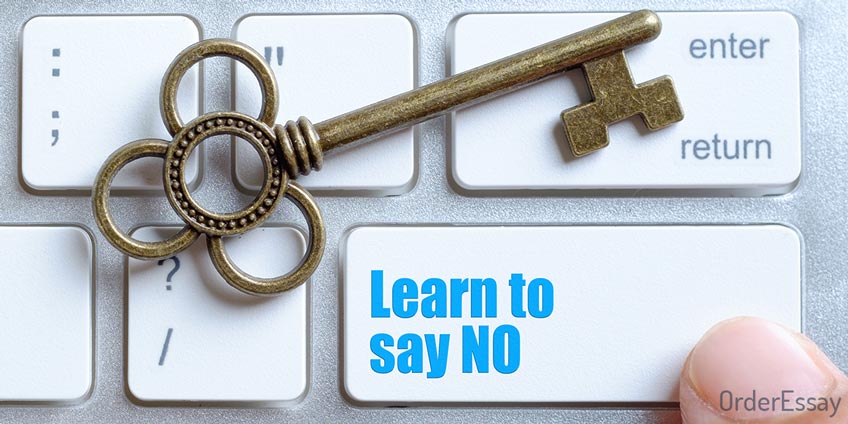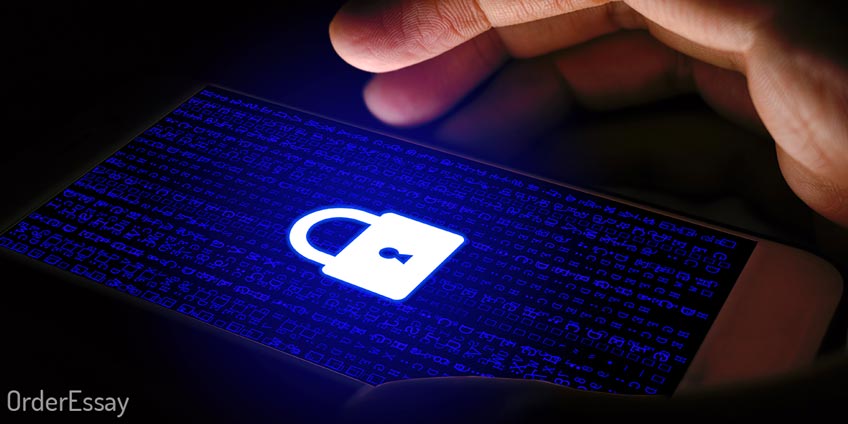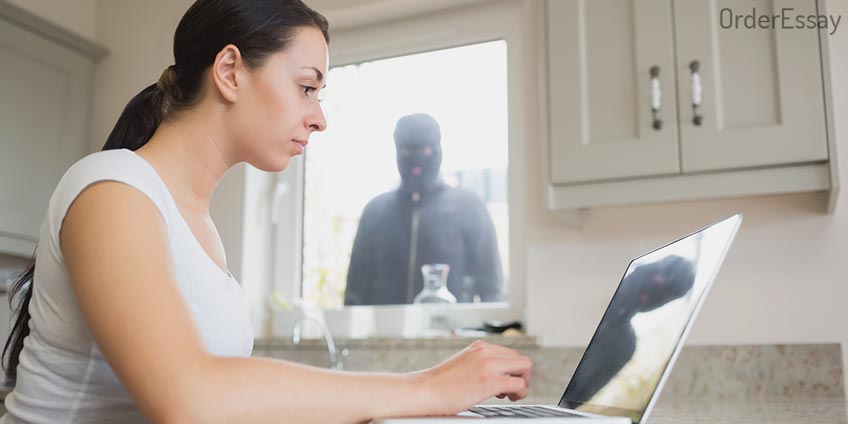
Do you know that every time when you posts a new photo on the Instagram or signs in another one website, you leave rather visible marks in the cyber domains and server systems? These traits cannot be vanished by deleting posted information. As a result, it is there forever. Just imagine, if to apply certain tools, all your strange photos and chats from fourteen-year age can be revealed and published somewhere without your direct permission!
The ever-evolving technologies in our fast-pacing world make it hard to protect yourself every new time from such modern problems connected with cybernation as attacks over the Internet that results into phishing, identity theft, or fraud. That is why it is extremely important to know the main rules to follow to avoid different unpleasant situations. Most of them can lead to catastrophic consequences for your existence in cyberspace.
Difference Among Notions
-
Cyber security or IT security is the set of methods and techniques to protect a computer system from theft, unauthorized access, or damage of the data contained in the hard and software system.
-
Network security implies various policies and techniques that can stave off such problems regarding computer network as an unauthorized access, modification, or denial. All these can become an issue due to authenticating data requested from network users by websites and different systems if they (network users) want to be able to have an access to different programs and information.
-
Internet security involves different rules and measures to protect user’s activity in the browser because the Internet, as it was mentioned above, provides a dangerous way to share data and personal information.
-
Hacker or intruder is that bad person that attacks your computer and tries to get personal information through possible weaknesses in the software system.
-
Malware is a kind of damaging virus that can do mischief to your computer. You might get it through spam with a bright ad or the offer to buy something following the link; and then, bounce, and your computer shows a blue screen of deth.
-
Vulnerability can appear when your system has an insufficient protection. Usually, the attackers snatch such an opportunity.
Types of Risks and How to Minimize Them

Oh, Social Engineering, Thou Art a Heartless Creature!
As you have surely already guessed, this type of risk is directly connected with the influence on human personality by the usage of social tricks and techniques that can have a great influence on individual’s psyche. The intruder can seem to be a reputable and rather trustworthy. You could never say that it was attacker after sharing important data. Sometimes, you cannot even get that it was a fraud.
Phishing Attack
This is one more type of risks connected with social influence. The attackers usually try to present themselves as a reliable person that just needs to get a piece of information about you or your place of work calling and introducing as a bank employee or a representative of a mobile firm. They can ask to name your ID, passport information, or pin code to your bankcards as if to check the correctness of data. As you understand, they do not check the correctness of information. Right after they have heard or got everything they wanted, you can expect to be swindled in next 15 minutes.
Phishing supposes playing with your conscience and feelings. The attackers can simply call to you and say that they are a charity organization collecting money for poor children suffering because of war or from hurricane somewhere on Caribbean islands.
Minimize It!
- - Be suspicious of all e-mails or telephone calls that you can get from strangers. If they introduce themselves as the representatives of a reliable organization or company, ask to verify it somehow or just put the phone down. It is better to seem impolite than swindled;
- - Do not post personal data over the Internet on unverified websites;
- - Contact the organization or company directly where you got the e-mail or phone call from any of them;
- - Do not be lazy and thoughtless and install needed security programs for your software as antivirus and e-mails filter.
Social Networking Sites
Social networks conquered humankind faster than any natural virus. It poses a threat and creates the precedents for the perilous situations.
So-called “friend-of-a-friend” websites were created with the aim to simplify human interaction. Nowadays, everyone can share the brightest moments of their life, begin relationships, find old school friends, and even real love.
However, not only good people are registered in the social networks. Various malicious people use these websites and individual’s personal data to commit crimes, network and physical.

Protect Yourself
- Filter the information that you are going to publish. There is no need, for example, to post your personal photos (at least, every day). Do not indicate your address, e-mail address, and phone number. Moreover, such data as your routine activities can also make your vulnerable!
- Internet is a public place. Share only those photos that do not compromise you. Remember, even if you deleted them from website, they could be already saved by other people on their personal devices;
- Contacts awareness. Do not accept all requests to be in your contacts. Add only those people you know or have heard about them from friends. Anyway, you can always set a special option to limit your profile visibility;
- Trust but verify. Do not take for granted everything that you read on the Internet. Do not forget that some people create fake profiles, fake groups that have only one purpose; it is to damage you;
- Create a safe and firm password. Try to make it a little bit harder than “12345” or your birthdate;
- Always read the privacy policy of every website. Some websites can include such points as sharing of your personal data with other websites or organizations.
Overall, look after yourself not only in real life but in cyberspace as well!

